Civ 6: Gathering Storm brings welcome drama to an increasingly busy 4X game
Volcanoes for everyone!
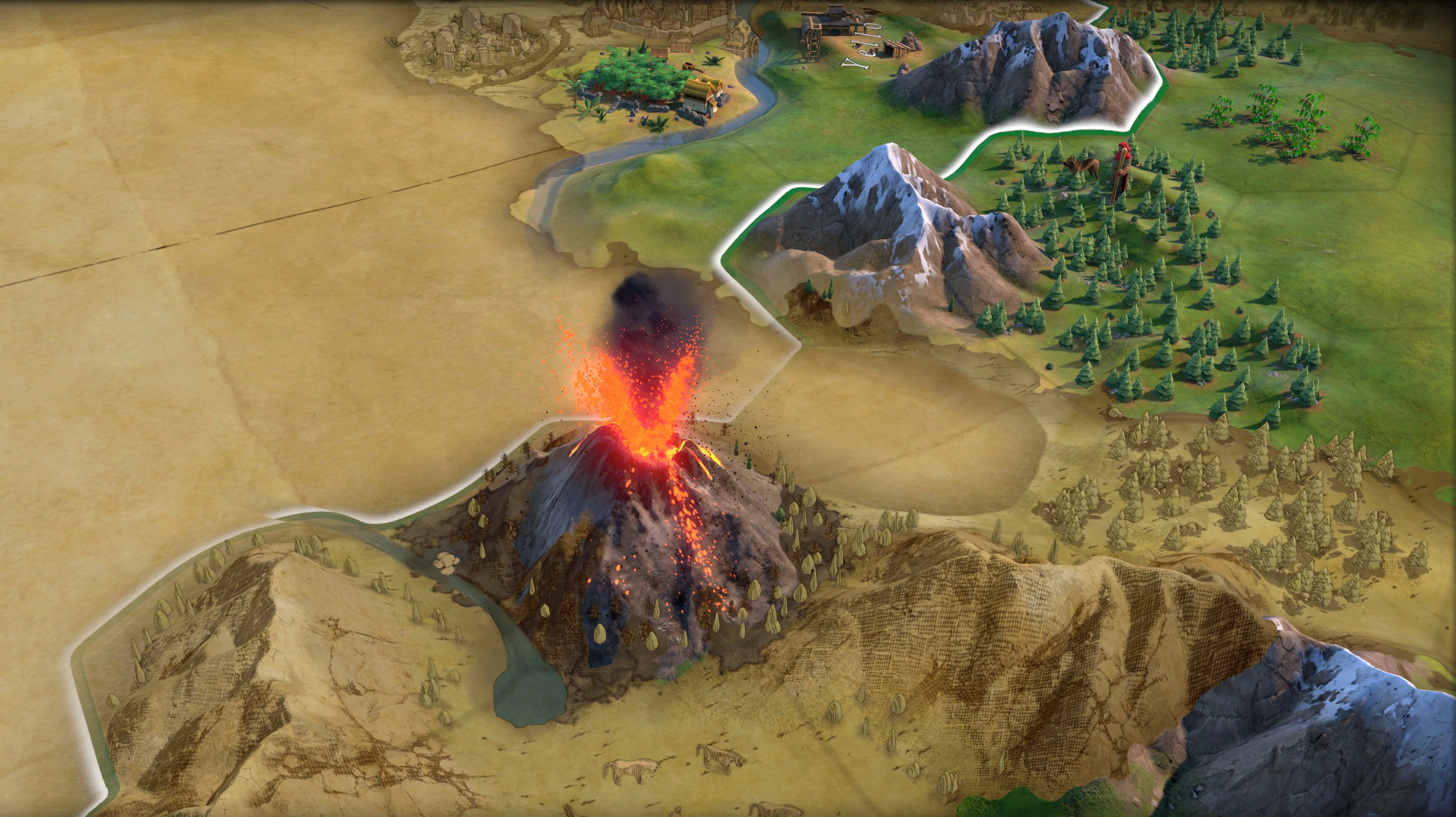
I started my journey through the history of civilisation adrift on the ocean. Gathering Storm’s Maori don’t begin a game of Civilization 6 like the other civs, except maybe those of Civ 6 mods. Instead of my settler and warrior appearing right next to a prospective city site, they were in boats, floating in between the map’s chilly southern pole and the tip of the continent to the north. For maybe the first time in over 20 years, I wasn’t rushing to found my first city.
The Maori civilisation is one of several joining the game in Gathering Storm, but it piqued my interest the most because it promised to break my routine. Not only does it start on and have a general affinity with the ocean, it benefits from not settling too early. Every turn waited pays dividends, but also comes with some big risks, not least that your entire civilisation could be undone if a barbarian chooses to attack your sole settler.
I wasn’t bold enough to wait for more than a handful of turns, but it was enough time to find a nice spot near a natural wonder and several exploitable resources, giving me benefits that most other capitals would have missed. Having the extra time to find the perfect home is an even bigger boon given the new threats facing humanity in the expansion.
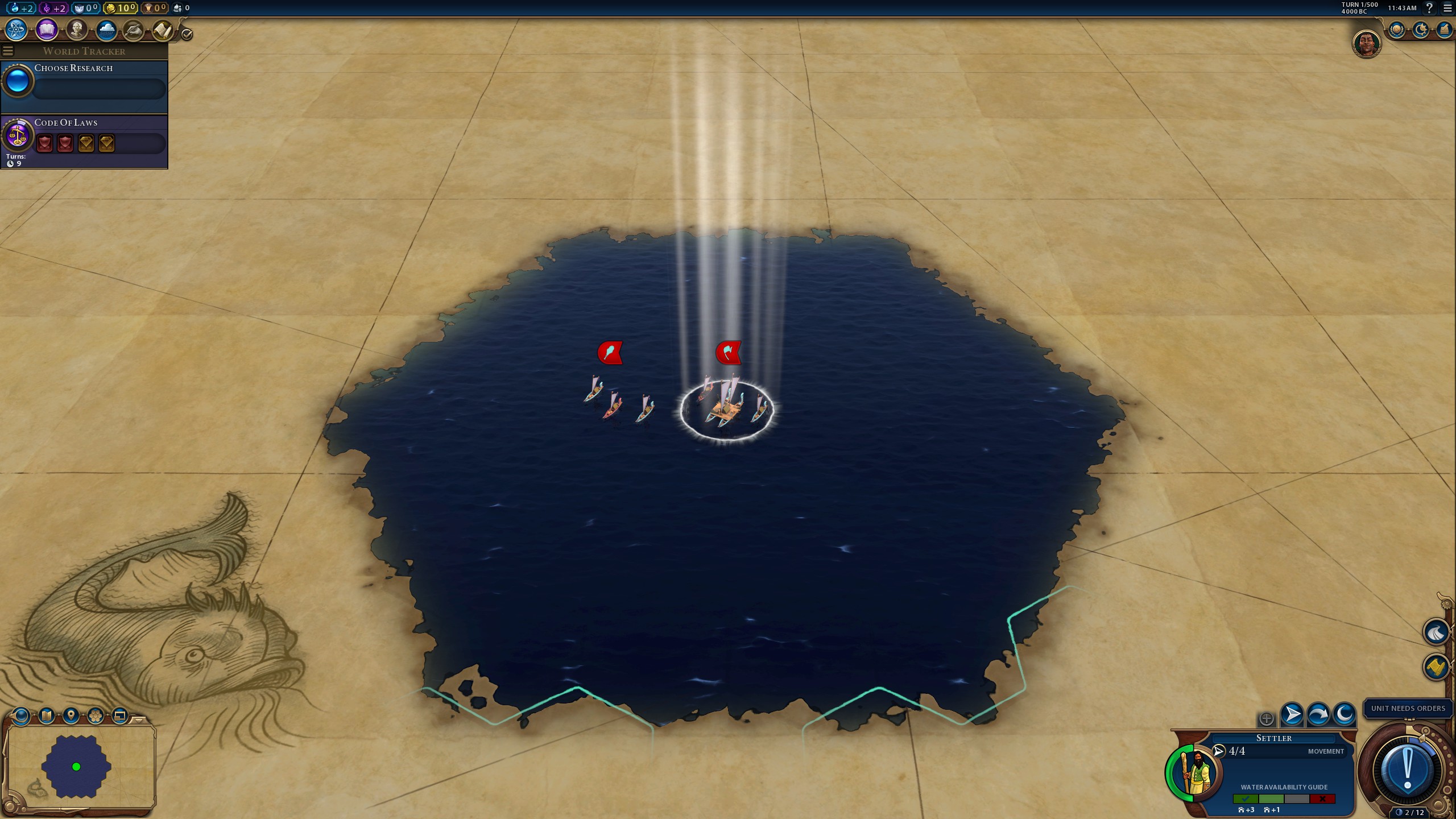
Volcanic eruptions, rivers bursting their banks, rising sea levels—there are quite a few ways for Mother Nature to enact her revenge. Initially, these threats are unpredictable and unstoppable, but you can avoid them with a bit of common sense. Don’t build underneath a volcano, don’t make your home on a flood plain and don’t get a beachfront property. Simple! Except it isn’t. All these places are actually good places to settle near, giving you access to more resources and more fertile soil. The risk might be worth it. At least that's certainly what I thought as I merrily built next to rumbling mountains filled with scorching lava.
Climate change, arguably the headline attraction, doesn’t start affecting the game until the Industrial era, when civs can start to exploit natural fossil fuels, but that doesn’t mean bad weather and natural disasters can’t kick off at any time. Even when they weren’t affecting me, messages about droughts and storms reached my civilisation, like an ancient Weather Channel. I could even see storm clouds in the fog of war, or at least little drawings of them, so I knew where they were even if I didn’t have cities or troops there at the time.
Fully settled, the Maori function like most of the other civs, though there remain quirks thanks to some unique abilities, like additional benefits from rainforest tiles and immediately starting with shipbuilding tech. I was, I confess, hoping for something more like Civilization 5’s Venice, which plays unlike any other civ and never grows beyond a single city, but there is still a hint of that asymmetry.
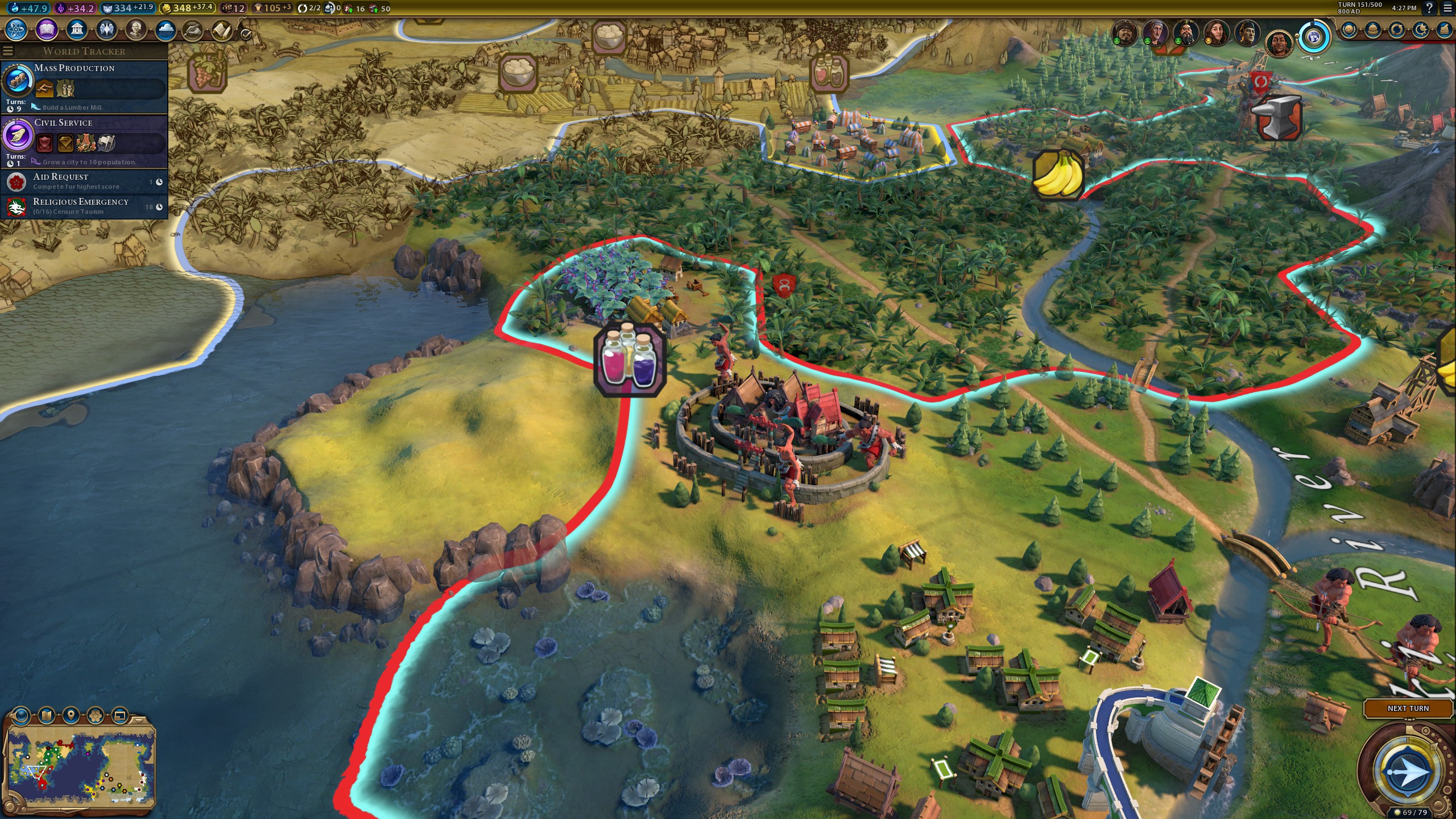
With my scouts sent out, I filled my rolodex with other civs and, eventually, the World Congress was established. Like Rise and Fall, Gathering Storm adds more features to the World Congress and diplomacy, offering up more opportunities for civs to work together and compete.
The biggest gaming news, reviews and hardware deals
Keep up to date with the most important stories and the best deals, as picked by the PC Gamer team.
Japan was in trouble. One of its cities was near a volcano that had erupted, creating an emergency that was brought before the World Congress. Like other emergencies, it set tasks for participating civs and then doled out rewards depending on how much effort you've put in. In this case, Japan needed gold to repair the damage, which could be offered as a gift or via a project that could be undertaken in one of my cities. I sympathised with Japan, having dealt with my own volcanic eruption a few turns before, so I was extremely helpful. As a credit to humanity, I was rewarded appropriately: with a big stack of diplomatic favour.
Diplomatic favour is a common reward in such emergencies, but can be earned in other ways and traded with fellow civs. It's a new resource that lets you boost influence when voting in the World Congress and can lead to a new diplomatic victory. It's pretty handy. Say some resolutions have been put before the world’s civs, so you go through them and the pick the ones you want to vote on. Maybe there’s a resolution where the targeted civ gets another trade route, and everyone trading with them gets extra gold. You can pick the civ—maybe you really need the extra route, so you pick yourself—and then you can start spending favour, essentially giving yourself more votes.
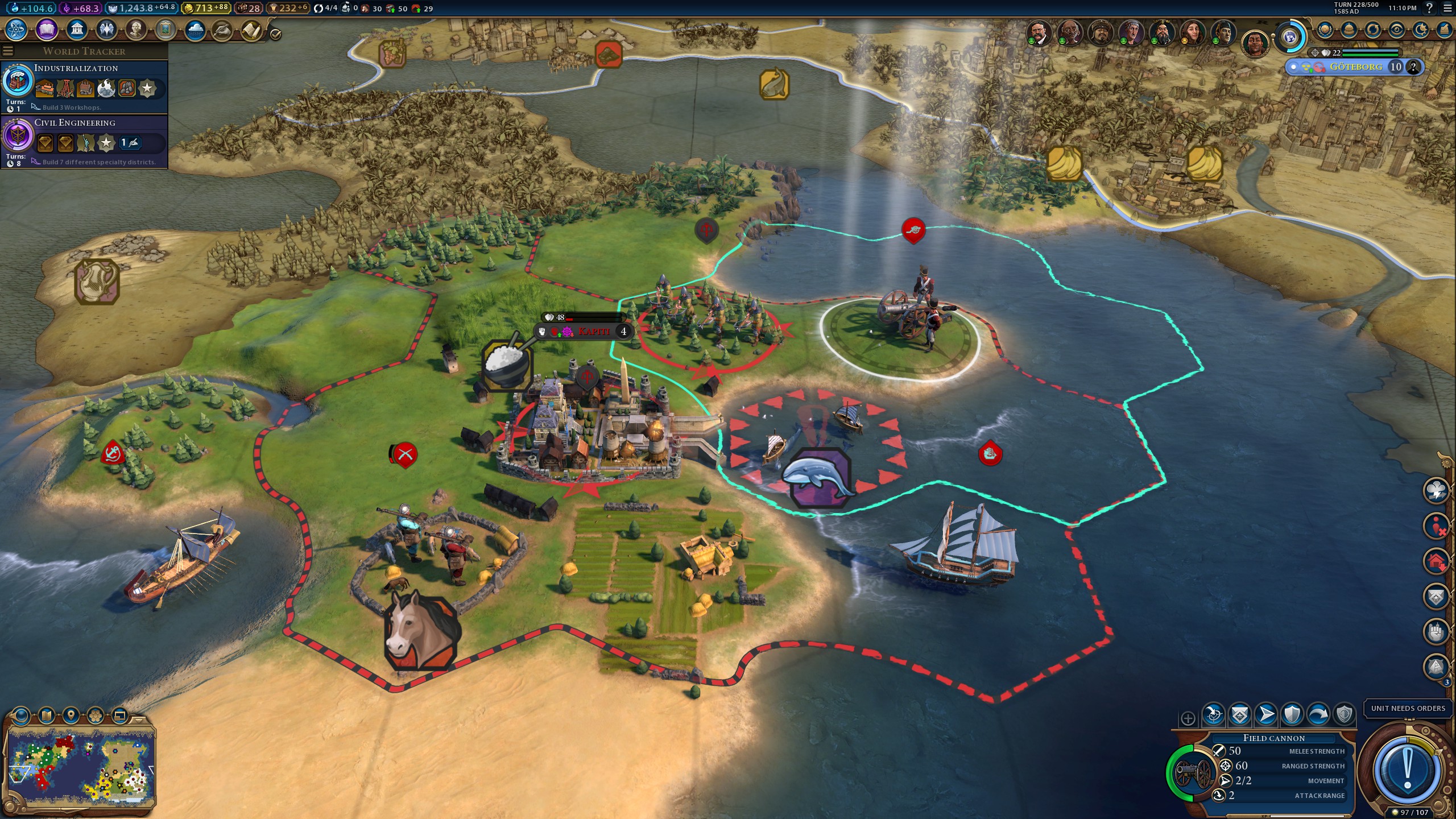
On its own, diplomatic favour seems like a clear way to understand how much international influence a civ has, and it adds some welcome structure and competition to the diplomatic game. Importantly, that competition can also be won without being completely adversarial. If you want to be a force for good in the world, making friends and helping people, you can absolutely do that and still earn lots of favour. Ultimately, it’s all about uniting the world, which is probably going to be a lot easier to do if you’ve not made a long list of enemies.
When applied to a game that already has lots of systems, however, it loses some of its elegance. There are a lot of currencies and resources to keep track of, and of course weather and climate change, and Civilization 6 is starting to feel very, very busy. These systems aren’t all introduced at once, though, which does give you some time to get to grips with each individually.
By the time industrialisation began and the world slowly started to react, I was already starting to get pretty used to thinking about how I could increase my hoard of favour or how I could use nature to my advantage. And it’s a good thing, too, as modernity brings with it a whole host of complexities, crises and solutions new to Civilization 6.
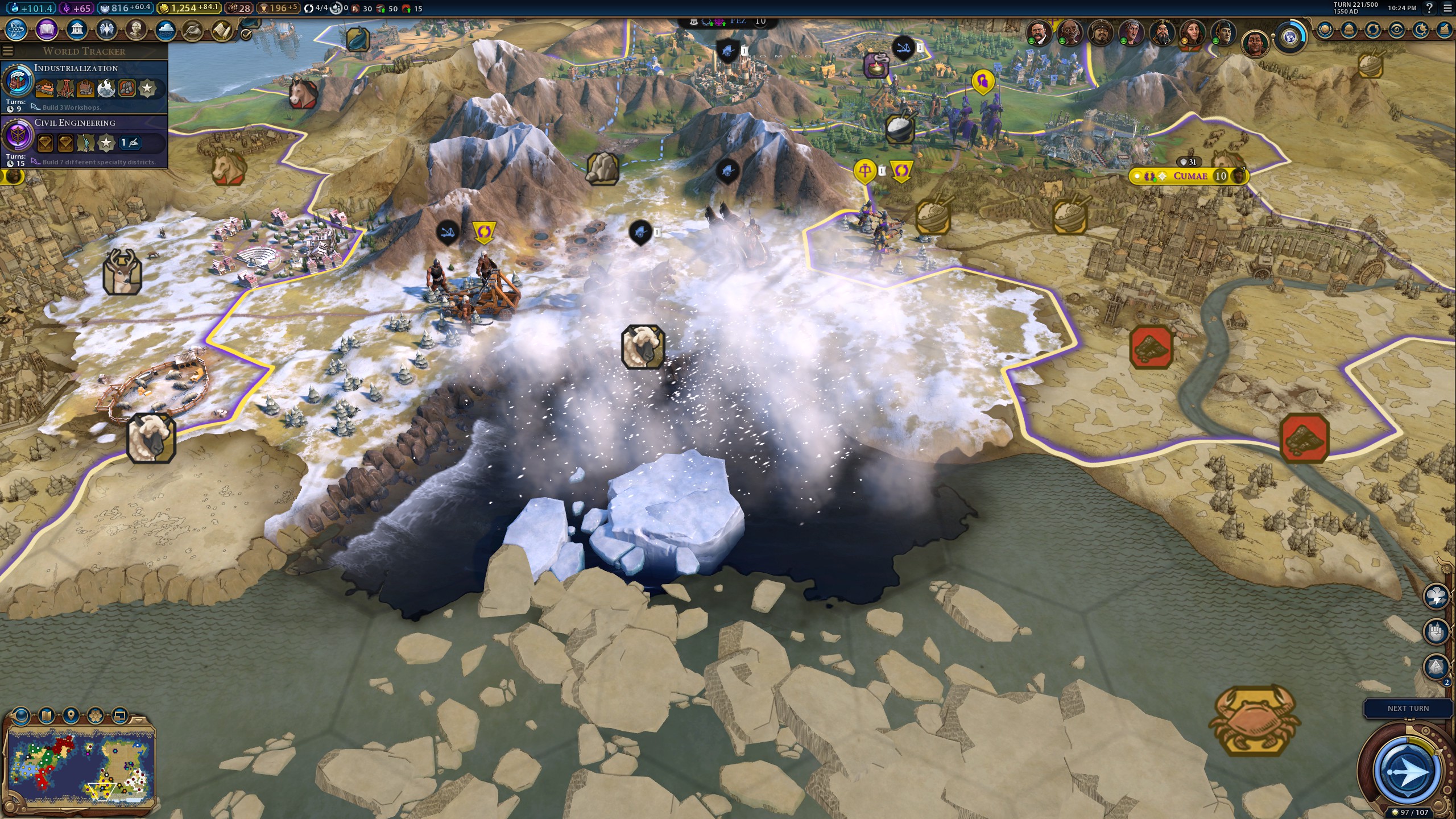
Modern buildings and units need fuel and resources to build and maintain, but doing so has a negative impact on the entire world, contributing to rising CO2 emissions and affecting the global temperature. This is all trackable, thankfully, in surprising detail, and not just in the later eras. The chart isn’t very scintillating before then, however, as it pretty much stays the same for most of human history.
Right now, I’m trying to create plans for the future, protecting my vulnerable Maori cities from rising sea levels and off-setting pollution by exploring greener paths, such as solar or geothermal energy. Maybe I'll even be able to do something about those pesky volcanoes. You don’t need to care about the planet—you can just keep burning through resources and accept the risks—but trying to curtail impending disasters and make the world a little bit better seems more appropriate for Civilization, which has always been a fairly optimistic series, despite the nukes and wars.
Keep an eye out for my review closer to the February 14 release date.

Fraser is the UK online editor and has actually met The Internet in person. With over a decade of experience, he's been around the block a few times, serving as a freelancer, news editor and prolific reviewer. Strategy games have been a 30-year-long obsession, from tiny RTSs to sprawling political sims, and he never turns down the chance to rave about Total War or Crusader Kings. He's also been known to set up shop in the latest MMO and likes to wind down with an endlessly deep, systemic RPG. These days, when he's not editing, he can usually be found writing features that are 1,000 words too long or talking about his dog.

